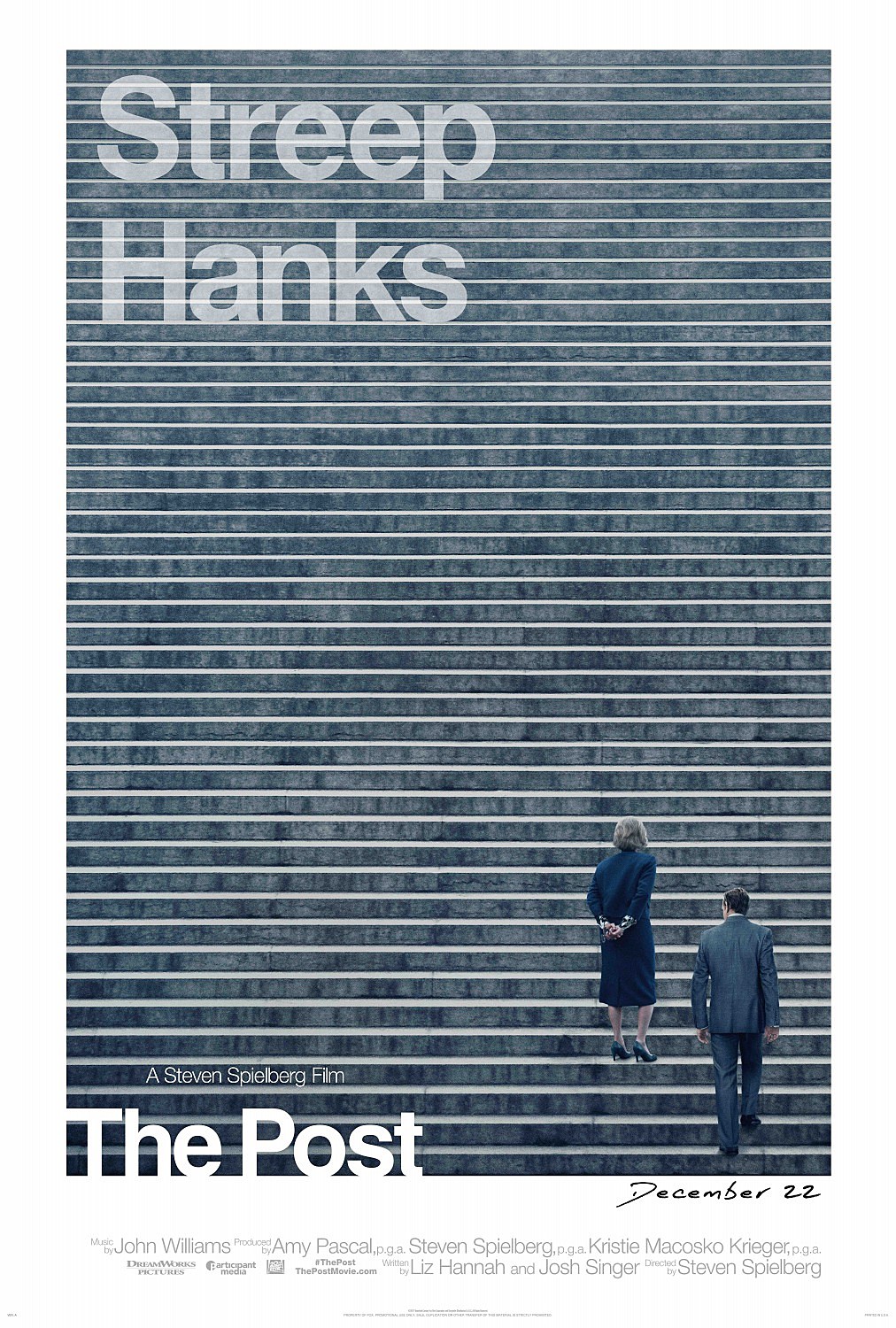Just two years after Tom McCarthy’s Spotlight put the, um, spotlight on the power and obligation of the free press in the United States (and won the Best Picture Oscar in the process), the topic is once again making waves at the movies with The Post, a re-telling of the 1971 events surrounding the leak and subsequent publishing of the Pentagon Papers.
Directed by Steven Spielberg, The Post is a superbly acted and exquisitely constructed film (assuming we forget that The New York Times had a much larger and more important role…but more on that later). It’s a testament to not only the importance of the news media in society but to the fearless convictions of people like then-Washington Post publisher Kay Graham and Editor-in-Chief Ben Bradlee. Though they’re now more known for their role in uncovering the Watergate scandal a year later, both Graham and Bradlee had already cemented their legacy with the Pentagon Papers, and The Post brings their story to life.
The film begins in 1966 Vietnam with embedded State Department analyst Daniel Ellsberg (Matthew Rhys) investigating the efficacy of the war in order to file a comprehensive report. After reporting to Defense Secretary Robert McNamara (Bruce Greenwood) that he feels the war is unwinnable and that the US hadn’t made any progress to that point, Ellsberg becomes disillusioned when McNamara holds a press conference touting the exact opposite. Years later the frustrated Ellsberg leaks portions of the report to The New York Times, who publish the famous first excerpts.
Bradlee (Tom Hanks) and Graham (Meryl Streep), meanwhile, are shepherding The Washington Post through turbulent times, both globally and within the walls of the paper itself. Graham is facing constant scrutiny (and worse) for being a woman in the paper’s most powerful position, and Bradlee is trying to make the Post relevant, dragging it up from its standing as a regional newspaper.
And that’s all before the Times publishes the Pentagon Papers.
To be fair and honest, The Post isn’t the history of Ellsberg and the leak, and it doesn’t pretend to be. The Times’ role is downplayed almost to the point of non-existence when, in actuality, it was their story; they did, after all, win a Pulitzer for publishing and reporting on the Ellsberg documents. Instead The Post takes those few impactful moments and uses them as the basis for a pseudo-Graham/Bradlee biopic with a message that couldn’t be more timely.
The backbone might be The Washington Post’s scramble to get the Papers for themselves (and then wrestle with the decision to publish them, in the face of a court order barring it), but this is a movie about the people involved. And when you have Streep and Hanks taking the lead alongside a stellar supporting cast, which includes Bob Odenkirk, Sarah Paulson, Bradley Whitford, and Tracy Letts, you can’t help but get something magical.
Spielberg actually directed the film in a rush, both to have it released as soon as possible in today’s political climate and because he was knee-deep in hefty post-production for his next film, March’s Ready Player One, but there’s no evidence that he skimped or didn’t give it his all. Though it lacks the gravitas of Spotlightand the clinical precision of All the President’s Men, The Post is still an excellent movie across the board.
The Times, though, might be an even better movie…should someone choose to make it someday.
Rating
4.5/5 stars
